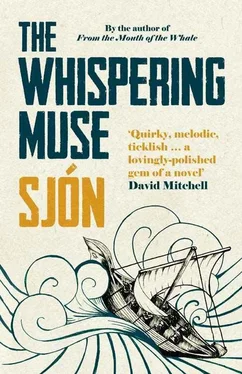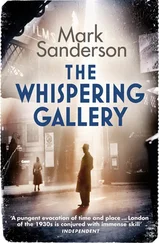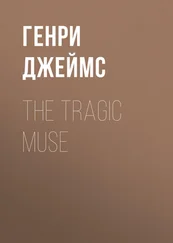A workman in blue overalls came racing out of the mill and ran over to the yellow, two-storey house where the director Raguel had his headquarters. Two clerks came out to meet him. The workman waved his arms in the air, pointing to the sawmill and the yellow house in turn. Then he clenched his fist and held it to his ear as if talking on the phone, at which one of the clerks ran back into the house, while the worker and the other clerk raced back to the mill. As they reached it the big doors at the eastern end were flung open and four factory hands hurried out carrying a fifth on a stretcher between them. He seemed delirious and kept trying to throw himself off the stretcher while his workmates pushed him down again. He beat them off with what seemed like unusually short arms that I understood later had been truncated in the accident — torn off at the elbows. More workmen came out of the mill doors on their heels and looked on apprehensively. One turned, shouted something to the others and pointed to the cable cars.
Now the door of one of the workers’ huts burst open and a wailing woman tried to run to the injured man but before she could go far the man in blue overalls intercepted her and clasped her tight. Three young children appeared in the doorway and stood there watching their mother cry, not daring to venture out.
I heard a truck start up on the quay and a moment later it drove over to the group by the mill. The driver shouted something out of the window to the stretcher-bearers but they didn’t stir. At that, the office clerk from the yellow house did some fast talking, gesticulating with his arms and stamping his feet, trying to drag the others over to the back of the truck. The man holding the woman now relinquished his task to someone else, shouted an order at the stretcher-bearers and ran to the beetle-black limousine parked beside the yellow house; it was the director’s own car, a Chrysler Windsor, 1947 vintage.
I nudged the first engineer who was standing beside me on deck watching the events unfold like the rest of the crew of the MS Elizabet Jung-Olsen.
‘This should be interesting…’
The man in blue overalls tore open the rear door of the director’s car and the others hurried over with the amputee. Meanwhile, the office clerk cupped his hands around his mouth and flung back his head, bellowing for all he was worth at the upstairs windows of the yellow house. As the men began to ease their bleeding workmate into the limousine its owner appeared at one of the office windows. He yelled and brandished his fist at the workmen, but pretending not to notice, they continued with their rescue effort. Next moment Herr Bastesen was down in the car park, ready to defend his pride and joy, moving extraordinarily nimbly, I thought, for such a fat man. He was about to grab one of the four workers by the shoulder when the man in blue overalls intervened and drove his clenched fist under the director’s nose with such careless force that the fellow crumpled to the ground unconscious.
At that the entire crew of the MS Elizabet Jung-Olsen (including the purser’s lady friend) broke into applause — for I was not the only one who didn’t care for Raguel Bastesen. Captain Alfredson, unable to join in with his men by virtue of his position, contented himself with coughing ‘ahem’ several times into his chest. I meanwhile said as if to myself but loud enough for others to hear:
‘Good, good…’
Throughout this sorry spectacle the factory siren had been wailing unremittingly and did not let up until the car vanished from view in a cloud of dust over the shoulder of the mountain. Then everything became so quiet that in the ensuing silence the hearts of the onlookers on deck were filled with sadness and shame at their failure to act, though one couldn’t really have done anything to help. Captain Alfredson cleared his throat and uttered a single word:
‘Men!’
It was enough to make the crew return wordlessly to their former tasks. That left just the two of us, the mate Caeneus who was off duty and I who was a supernumerary, to watch the aftermath. Bastesen’s clerks lugged their supine boss up the steps of the yellow house. The young children stood in the hut doorway, supporting each other, until the man who was looking after their mother led her inside, closing the door behind them.
I moved closer to Mate Caeneus, took up position at his side and gripped the rail like him. He nodded to me but somehow I sensed he was looking at my hands. I nodded back and returned the favour. It was only then that I realised just what a big fellow the mate was. At the dinner table I had thought we were of a similar build, in spite of the age difference, but now it became clear that he was your average man multiplied by one point twenty-three (5’ 6” × 1.23 = 6’ 9” tall) and his bulk was consistent with this. I have always been considered a strapping fellow but Caeneus was a titan. And it was all muscle that rippled beneath his mate’s jacket.
Having finished my examination I said in a casually conversational tone:
‘Well.’
‘Yes,’ he responded.
‘So it goes.’
‘Yes.’
‘Life in Norway…’
‘I s’pose so…’ he said.
I changed the subject:
‘That’s quite a story you tell the crew in the evenings.’
‘You said it…’
‘They seem to enjoy it, for all its oddness.’
There was a short pause — a black-headed gull flew overhead.
‘Anyway…’
With that the broad-shouldered Caeneus raised his index finger to touch his scalp on the right in a brief salute and took his leave:
‘Thanks for the chat, Mr Haraldsson.’
I hesitated a moment. As the mate tilted his head, his eyes twinkled like a woman’s. Having seen some pretty odd things in Berlin in the years after the First World War, I thought:
‘Aha…’
But said merely:
‘Thank you !’
And raised my left hand halfway to my temple. Caeneus headed to the bridge while I returned aft to tend to my rod.
I was in luck: a huge cod had taken the bait and swum far out into the bay with the line. There it was fighting to free itself from the hook, bending the rod to breaking point for what seemed like an eternity — it took me a full forty minutes to reel it in. When it finally stopped flapping about the deck and lay gasping at my feet, I calculated that this gargantuan fish would suffice for at least two meals for the seven of us at the captain’s table.

The diners raised their eyebrows when the main course was served that evening. It consisted of poached cod and potatoes with melted butter and slices of tomato. The cook emerged from the galley to inform the dinner guests that I’d come up with this recipe off the top of my head and had told him that on the rare occasions when Hermann Jung-Olsen and I had had the good fortune to dine together this was the dish that had been served, though sometimes with haddock instead of cod.
‘Quite right!’ I said, though I pointed out that the tomatoes were the cook’s idea, and the only accompaniment apart from potatoes that the late Hermann and I had eaten with this dish was dulse. Most of the diners tucked in with gusto and a voice was heard to comment that this made an unexpected change from the ship’s customary menu.
Whether it was thanks to this light but substantial fare or not, a novelty occurred in that Mate Caeneus took up his tale between the main course and dessert:
‘That evening we trooped to Queen Hypsipyle’s palace where they were throwing a great banquet in honour of Jason and his Argonauts. The streets were lined with the skirt-clad populace of Lemnos: civilian women, crook-backed bondswomen and giggling young girls, all hungrily eyeing the troop of heroes who passed through the city like molten lead in the crucible of Hephaestus, glowing hotly in their moulded, sun-burnished armour, eager to harden in the tempering embrace of the court ladies. The only thing that detracted from the magnificence of the occasion was the powerful stench that filled the streets like steam from a bathhouse, the iron-smell of blood mingling with the sweetness of cow dung, the sour reek of burnt wood in the rain and the bitterness of apricot kernels.
Читать дальше













